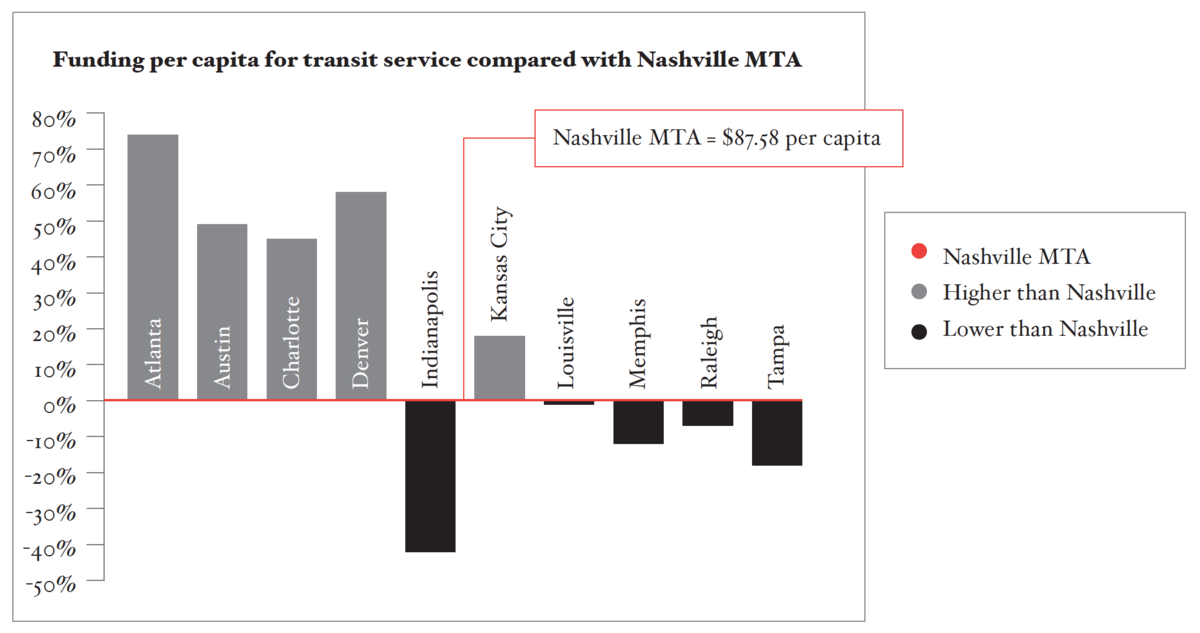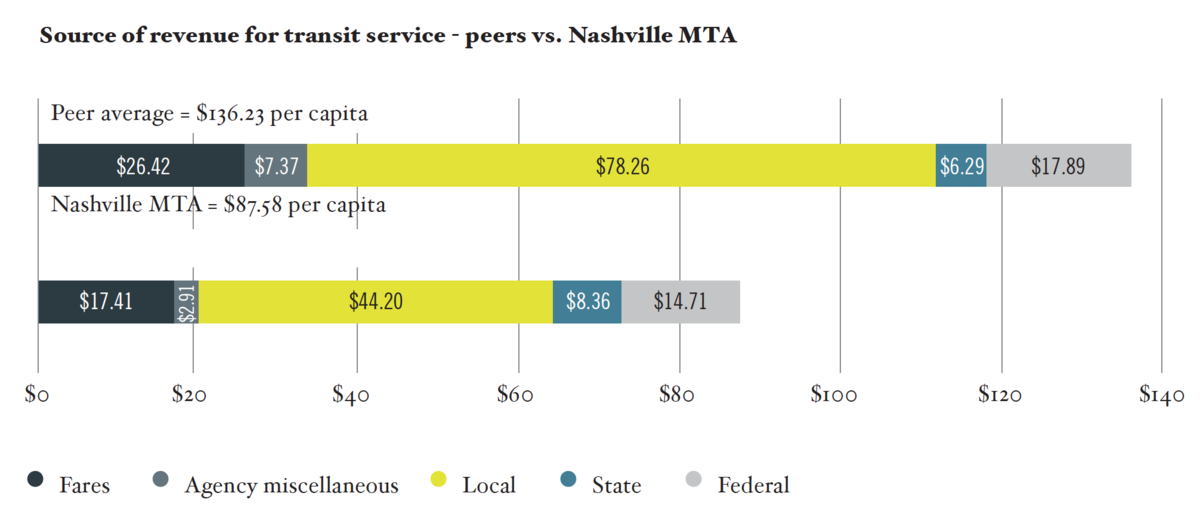Nashville Public Radio
Tony Gonzalez
The message this week from the Nashville Area Chamber of Commerce is clear: Go big on mass transit, to the tune of several billion dollars.
Yet where to get the money is less clear in the new “Moving Forward” report. And among officials, there’s caution about talking too soon about funding.
The big ideas being developed by the Nashville Metropolitan Transit Authority (MTA) would almost certainly need some kind of targeted tax. Getting such dedicated funding has been contentious in the cities Nashville thinks of as models.
For example, in Denver in the late 1990s, voters rejected a plan. Later, they approved a sales tax for light rail. That was only after advocates spoke to tens of thousands of residents, and found pockets of support among young professionals and, surprisingly, retirees.
“One of the biggest pockets of support were retired women over the age of 65, because they saw it as the first opportunity for them to come back into downtown and see a show at the performing arts center and have lunch together with the girls,” said Kathleen Osher with Denver’s Transit Alliance.
She says the promise of economic development also helped make the case for rail, and the conversation in Colorado morphed over time — from focusing on transit for its environmental benefits, to a much wider discussion of health and mobility.

In Austin, the sales tax has reached its maximum. So a property tax is being debated.
But that’s a slog, says Austin transit advocate Richard MacKinnon, who also lives part-time in Nashville.
“The people who have been in their homes for awhile are feeling the property taxes just ratchet up, annually,” he said. “So they’re feeling sort of a property tax fatigue.”
MacKinnon isn’t sure that’s the same here.
He’s praising local officials —including the MTA’s nMotion studies and the chamber — for sketching out the scope and scale of transit ideas before turning to the funding question.
“The mayor’s office and the MTA/RTA and the chamber seem to be giving the impression that they are on the same page, but at the same time working independently, to arrive at similar conclusions,” he said. “That gives the impression, at least to me, that there’s some independent checks and balances, and some consensus building.”
That’s not to say MacKinnon doesn’t want to see action. And that message comes across in the deadline suggested by the chamber, which is pushing city officials to lock in a funding idea by the end of 2018.

